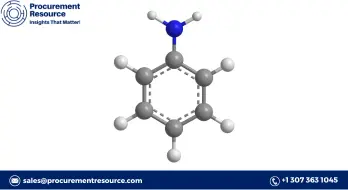Product
Aniline Price Trend and Forecast
Aniline Price Trend and Forecast
Aniline Regional Price Overview
Get the latest insights on price movement and trend analysis of Aniline in different regions across the world (Asia, Europe, North America, Latin America, and the Middle East & Africa).
Aniline Price Trend for the Q4 of 2024
| Product | Category | Region | Price | Time Period |
| Aniline | Chemicals | India | 1838 USD/MT | October'24 |
| Aniline | Chemicals | India | 1883 USD/MT | December’24 |
| Aniline | Chemicals | China | 1427 USD/MT | October’24 |
| Aniline | Chemicals | China | 1290 USD/MT | December’24 |
Stay updated with the latest Aniline prices, historical data, and tailored regional analysis
Asia
The aniline market in Q4 2024 exhibited relative stability in Asia, with India demonstrating stronger demand resilience compared to China. Throughout the quarter, the market saw fluctuations influenced by feedstock benzene trends and varying downstream consumption. In India, improved purchasing sentiment and stable industrial activity provided a buffer against price volatility, allowing for a steadier market environment. In contrast, China faced greater downward pressure due to cautious downstream procurement and an oversupplied market. In India, the monthly average CIF prices went from about 1838 USD/MT in October to around 1883 USD/MT in December’24.
Aniline Price Chart
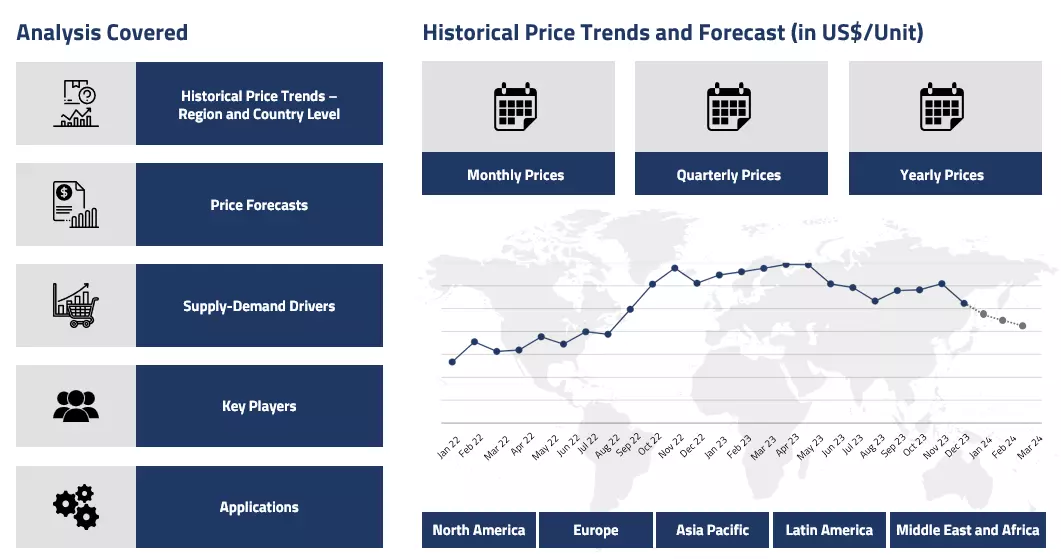
Please Login or Subscribe to Access the Aniline Price Chart Data
On the other hand, the Spot prices for aniline slid from about 1427 USD/MT in October’24 to around 1290 USD/MT in December’24 in the Chinese markets. Despite intermittent production adjustments and temporary upticks in prices driven by cost-push factors, overall sentiment remained tepid. Benzene price movements played a critical role, as initial strength supported prices before weaker fundamentals led to a softening trend towards the quarter’s end. With supply-side pressures persisting and cautious market participation, aniline prices in Asia remained rangebound. Moving into the next quarter, the market is expected to consolidate further, with any upside potential contingent on feedstock cost stability and improved downstream activity.
Europe
The European aniline market in Q4 2024 witnessed a mixed trend, with intermittent price fluctuations driven by volatile benzene costs and cautious downstream demand. Early in the quarter, firm feedstock prices provided upward momentum, but weakening consumption in key sectors, coupled with ample supply, capped gains. Sporadic production adjustments and inventory management efforts helped stabilize prices mid-quarter. However, towards the end, softer demand and a decline in benzene prices exerted downward pressure. Overall, the market remained rangebound, with limited price movements. Looking ahead, sentiment remains cautious, with further trends dependent on feedstock dynamics and economic recovery.
North America
In Q4 2024, the North American aniline market experienced moderate fluctuations, largely influenced by benzene price trends and supply-demand dynamics. Early in the quarter, stable demand from the downstream MDI sector provided support, keeping prices firm despite rising production costs. However, as the quarter progressed, easing raw material costs and steady supply weighed on prices, leading to a more balanced market. While occasional supply constraints led to short-term price recoveries, overall sentiment remained cautious. Moving forward, the market is expected to track benzene trends and downstream demand strength, with limited scope for significant volatility.
Analyst Insight
According to Procurement Resource, The global aniline market in the upcoming quarter is expected to remain stable to slightly weak, with price movements largely influenced by benzene costs, supply adjustments, and varying regional demand dynamics.
Aniline Price Trend for the Q3 of 2024
| Product | Category | Region | Price | Time Period |
| Aniline | Chemicals | India | 1845 USD/MT | July'24 |
| Aniline | Chemicals | India | 1885 USD/MT | September'24 |
| Aniline | Chemicals | China | 1488 USD/MT | July'24 |
| Aniline | Chemicals | China | 1446 USD/MT | September'24 |
Stay updated with the latest Aniline prices, historical data, and tailored regional analysis
Asia
The Chinese Aniline market witnessed mixed trends in the third quarter of 2024. The prices showed a decline in July due to falling prices of the feedstock crude oil. High inventories and slow demand kept the prices of raw material benzene at the lower end, which pressured the downstream industries. The production and sales of aniline remained weak in the same period. As the quarter progressed, the prices of aniline stabilized in the short term and started to fluctuate again but in a narrow range. The same was depicted in the average spot prices, which were around 1488 USD/MT in July and 1446 USD/MT in September in the Chinese domestic market.
In India, the Directorate General of Trade Remedies (DGTR) announced the launch of a review investigation regarding the anti-dumping duty (ADD) on aniline imports from China, as stated by the Ministry of Commerce and Industry. This action followed a petition from Gujarat Narmada Valley Fertilizers & Chemicals (GNFC), which contends that removing the duty could result in heightened dumping of the product. This affected the supply of aniline in the Indian market which remained volatile with an inclining trend in the said quarter. The price of aniline was around 1845 USD/MT (CIF) in July and increased to 1885 USD/MT (CIF) in September.
Europe
The European aniline market in Q3 2024 faced steady yet cautious conditions amid fluctuating benzene costs and subdued downstream demand, particularly from MDI production tied to a slowing construction sector. Buyers adopted a conservative purchasing approach, limiting volumes to immediate needs as volatile feedstock prices squeezed producer margins.
Sustainability initiatives gained prominence, with Covestro advancing bio-based aniline from sugar, reflecting a shift toward greener alternatives. Meanwhile, Covestro's potential acquisition by ADNOC and its ongoing cost-cutting measures highlighted structural changes and financial pressures within the industry. Despite challenges, the market showed resilience, supported by innovation and cautious optimism for long-term recovery.
North America
Aniline prices in the North American market fluctuated throughout the quarter, reflecting cautious sentiment among traders. Market buoyancy was intermittently influenced by anti-dumping complaints against certain phenol-exporting countries, temporarily dampening aniline demand. Additionally, logistical disruptions caused by the hurricane season briefly affected supply as production facilities shut down, though these challenges were short-lived.
Analyst Insight
According to Procurement Resource, aniline prices are expected to fluctuate in the coming months as the evolving geopolitical events and macroeconomic factors will influence the petrochemical sectors globally.
Aniline Price Trend for the Q2 of 2024
Asia
In April, the prices of aniline traded on the higher end of the spectrum, supported by several contributors such as the rising cost of feedstock benzene, stocking by downstream industries and traders before the May Day holidays, and a rising number of overseas inquiries. The manufacturing and trading units in Shandong also witnessed the carry-over stockpiles declining gradually and offering the aniline markets its much-needed cost support.
This strong momentum of the market, however, was limited to the month of May as in June the market lost its earlier gains, and prices of aniline declined. This depreciation is expected to be a result of slow industrial activities after the holidays and a consistent fall in nitric acid cost, one of the raw materials in aniline production. By the end of the quarter, the production rates overpowered the procurement rates of the commodity in both domestic and overseas markets, leading to the settlement of aniline prices on the lower end.
Europe
In the second quarter of 2024, airline prices in Europe saw an increase, driven by firm demand from the pharmaceutical sector and polyurethane production units. Despite challenges in the construction sector, which faced a slowdown in housing activity and a significant drop in commercial building projects, aniline demand remained stable.
On the other hand, the availability of aniline stocks was moderate, and production costs eased as benzene prices decreased, influenced by lower crude oil prices and increased onshore inventories. However, cost support remained firm from nitric acid due to limited supplies and heightened demand from fertilizer manufacturers.
Suppliers were able to maintain stable aniline quotations also due to balanced demand-supply dynamics. As the quarter progressed, consumer prices in the euro area rose moderately, reflecting increased costs for goods and services. However, aniline orders from the Polyurethane segment remained moderate to low, impacted by persistent downturns in construction.
North America
Aniline prices in the USA showed an upward trend after moderate fluctuations in Q2’24. This increase was driven by higher import quotations in early April despite lower ocean freight rates following a bridge collapse incident at Baltimore Port. The market experienced moderate supplies from Asian exporters, while export rates from China declined.
The production costs for aniline rose due to higher raw material prices, influenced by tight supplies and geopolitical tensions between Israel and Iran. Additionally, stable feedstock nitric acid prices and increased energy costs due to the country's shift towards cleaner energy sources contributed to higher production expenses and reduced production rates.
Despite these challenges, domestic aniline demand remained stable with moderate consumption by MDI manufacturers, as the demand for polyurethane materials in the construction sector declined. Orders from the pharmaceutical sector also stabilized amid anticipated price increases for Acetaminophen. By mid-quarter, import prices were expected to rise due to moderate supply availability, increasing freight charges, and higher air freight volumes amid the Red Sea crisis.
Analyst Insight
According to Procurement Resource, the price trend of Aniline is estimated to move northwards in the upcoming quarter, supported by increase in offtakes by the MDI producers and rising cost of production.
Aniline Price Trend for the Q1 of 2024
| Product | Category | Region | Price | Time Period |
| Aniline | Chemicals | India | 1563 USD/MT (CIF | January 2024 |
| Aniline | Chemicals | India | 1612 USD/MT (CIF) | March 2024 |
| Aniline | Chemicals | China | 1484 USD/MT | January 2024 |
| Aniline | Chemicals | China | 1508 USD/MT | March 2024 |
Stay updated with the latest Aniline prices, historical data, and tailored regional analysis
Aniline prices observed a positive price trajectory in the Asian region during the first quarter of the year 2024. Indian aniline market performed better than the Chinese market as the growth was more consistent here. In the Chinese domestic market, the prices first rose quickly from January to February, however, a swift decline was seen after that as the prices started dipping post that owing to the dull downstream demands.
In the Indian market, the average monthly prices stood at around 1563 USD/MT (CIF) in January’24 and went up to about 1612 USD/MT (CIF) in March’24, yielding an approximate appreciation of about 3%. In the Chinese market, the prices showed a 2% escalation in the first couple of months but then receded quickly moving forward. The average monthly prices in the Chinese domestic market went from about 1484 USD/MT in January’24 to around 1508 USD/MT in March’24.
Europe
Aniline price trend in Europe was in total conflict with that of the Asian price trend during the first three months of 2024. The market here witnessed a steady and consistent depreciation throughout the said time. As the demands maintained a muted stature, the inventories kept bulking up with excess stocks, which in turn added to the negative cost pressure.
The economic instability in the region, with an ever-stretching war between Russia and Ukraine, has created some serious supply chain issues. With the freight issues unfolding in the Red Sea as well, the offshore trade is also hurdled. As a result, the aniline prices observed a falling trajectory for the entire duration of Q1’24.
North America
The American aniline market reflected a resemblance with the Chinese market during the said time. The price graph was almost paralleled as it went from January to February exhibiting stability and a steady supply-demand dynamic for that time. However, as it went from February to March, a clear fall in prices could be observed. This shows the decline in downstream demands for aniline in the consumer market. Two open war fronts in Europe and the Middle East have also complicated the trade situations for the USA. Overall, mixed market sentiments were observed in Q1’24.
Analyst Insight
According to Procurement Resource, the Aniline price trends are likely to continue wavering in the coming months as well; since the demands are not likely to pick up anytime soon and the inventories are capable of catering to impending demands.
Aniline Price Trend for the October - December of 2023
Asia
Aniline prices observed mixed trend in the Asian markets during quarter four of the year 2023. In the Chinese market, aniline prices first took a downward hit of around 18% from October to November; however, it showed an increment of around 12% during the latter half of the quarter.
In the Chinese market, aniline spot prices averaged around 1537 USD/MT during the last month of December, and this increment is primarily owed to the armed conflict that broke out between the state of Israel and Hamas, which once again disturbed the global supply chains like the Russian war.
The Indian aniline market, on the other hand, observed consistent upliftment during the said time period as the monthly average prices rose from around 1472 USD/MT (CIF, India) in October to around 1515 USD/MT (CIF, India) in December, exhibiting an incline of about 2%. The Indian aniline market was relatively more stable compared to the other markets, but the overall market outlook was positive for aniline.
Europe
Since aniline is produced from benzene, the price trend are usually found in the alliance; given the production cuts and armed conflicts, the entire petrochemical industry suffered as the prices increased. Aniline prices were observed to be wavering in confined limits. Overall, mixed market sentiments were observed.
North America
The North American market performed relatively weakly at the price scale during the last quarter of months in 2023. The impending holiday season around Christmas and New Year called for dull demands from the consumption industries, primarily chemical industries, and thus, the aniline prices were found to be depreciating in the American market during the said period.
Analyst Insight
According to Procurement Resource, Aniline price trend are expected to continue wavering in a similar manner going forward as well. Market demands and supply dynamics will continue to drive the market sentiments for aniline.
Aniline Price Trend for the July - September of 2023
Asia
Aniline is a versatile chemical used in various industries like pharma, fabrics, plastics, etc. During the discussed third quarter of 2023, the aniline price trend mostly registered positive hikes along with some occasional dips. The downstream demands, along with feedstock prices, fundamentally drove the aniline price trend.
With an impressive escalation of about 21%, aniline’s regional spot price in the Chinese domestic market elevated from around 1334 USD/MT in July’23 to about 1615 USD/MT in September’23. The price analysis is giving positive forecasts for the coming months as well.
On the other hand, in India, the aniline price graph was relatively more plateaued. The prices first grew in August but again came down in September’23. An overall hike of around 1% was observed in the Indian regional market as it closed the third quarter at around 1385 USD/MT (CIF) in September’23 after ranging around 1365 USD/MT (CIF) in July’23.
Europe
The European price analysis for aniline suggested fluctuating price trend during the said time period. The market started slowly in July’23 with a slump in demands from the consuming sectors. However, the demands started showing positive movements in the middle of the quarter, primarily from the pharma sector, and carried the aniline rates up along together. Overall, mixed market sentiments were observed for aniline.
North America
The North American market almost mimicked the European price trajectories for aniline in Q3’23. After a dull beginning in July, the market finally started picking up in mid-August ’23. The demands from the chemical, dyes, and plastic industries were the principal drivers of the aniline price index.
Analyst Insight
According to Procurement Resource, the aniline market trend suggest a mixed market run going forward. The aniline price analysis gives a positive market outlook for the coming quarter.
Aniline Price Trend for the First Half of 2023
Asia
The Asia-Pacific market showcased mixed trend in the first two quarters of 2023 as the demand from the downstream MDI producers fluctuated throughout the said period. In China, the spot prices inclined sharply from 1468 USD/MT in January to 1844 USD/MT in March, then swiftly declining to around 1525 in June’23.
On the other hand, in India, the price trend steadily inclined from around 1792 USD/MT in January to 1932 USD/MT in June’23. The major contributors to this incline were the stable demand from the furniture sector, the rise in the level of inquiries, and the low availability of products due to the shutting down of several manufacturing plants.
Europe
The methylene diphenyl diisocyanate (MDI) market heavily influenced the price trend of Aniline in the first two quarters of 2022. The prices suffered negatively from the falling orders from MDI and other downstream industries. The declining feedstock prices, coupled with weakened demand from the fertilizer industry, further aided the fall in aniline prices. However, the prices were subjected to marginal fluctuations, given the current market fundamentals.
North America
In North America, the price trend for Aniline inclined during the first quarter as the demand from the MDI sector improved. The inquiry levels from polyurethane industries were stable while the manufacturing sector struggled to keep up with them.
Amid the limited supply, stagnant demand for the product, rising inflation, and uncertainties in the upstream costs, the price trend moved upward. However, with the arrival of cheap imports from China, the US market faced the issue of oversupply, causing domestic manufacturers to decrease their quotations to remain competitive. Hence, the price trend for Aniline suffered in the second quarter.
Analyst Insight
According to Procurement Resource, the price trend for Aniline are expected to fluctuate in the upcoming quarter. The oversupply of Chinese products amid subdued demand from the European region and uncertainties in the oil market will likely exert pressure on the aniline prices.
Aniline Price Trend for the Second Half of 2022
Asia
The price trend of aniline witnessed an oscillating trajectory in the said quarter. The upstream crude oil prices relaxed providing much-needed relief to the petrochemical industries. In China, the operational rates were decreased on government orders to tackle the growing heat waves and power consumption. Hence, this further limited the supply of aniline in the market but no simultaneous rise in the prices was seen considering the muted sentiments of the market. However, towards the end of Q3, the prices inclined to owe to the momentarily increase in the downstream demand.
This pattern continued till the mid of Q4, after which the prices again began to fall. Amid the economic slowdown, depreciating currencies and the buyers resorted to wait and see attitude causing the prices of aniline to decline in the market. The price of aniline in the Chinese domestic market settled at 1487 USD/MT ( Spot FD China) (approx..) in September’22 while that of the Indian domestic market settled at 1959 USD/MT (Spot FD India) (approx..).
Europe
Aniline prices declined ( with occasional fluctuations) in the European region owing to the reduced offtakes from the market as the downstream demand dwindled. High energy rates and supply disruptions contributed to negative market sentiments causing the prices to fall.
North America
The price trend for aniline stood firm in the North American market during the said period. The prices majorly declined with intervals of slight increment. The prices fell owing to decreased demand, reduced offtakes, excess supply, and low feedstock prices.
Analyst Insight
According to Procurement Resource, the prices of aniline are expected to remain volatile in the coming month. As the international market is recovering from the aftermath of economic backlash the market pricing fundamentals and demand are recovering slowly.
Aniline Price Trend For the Second Quarter of 2022
Asia
An oscillating price trend for aniline was noticed in the Asian arena. In China, aniline price increase was attributed to the increased market sentiment after the government relaxed the covid-19 restrictions. The price averaged 11200-11400 RMB/MT in Shandong and around 11800 RMB/MT in East China.
Europe
Due to the record high crude oil prices, Europe is experiencing supply chain disruptions, disturbing the market equilibrium, which has offset the acute energy crisis in Europe. Due to the sanctions and reluctance towards Russian cargos, the benzene prices- the primary feedstock for aniline have been appreciated highly. In this quarter, the price for benzene averaged 1427 USD/MT, FOB Hamburg.
North America
Amidst the rising crude oil prices and supply disruptions, benzene prices soared, affecting aniline prices. As of June 2022, the benzene price averaged 1827 USD/MT, further inflating the prices of its derivatives.
Analyst Insight
According to Procurement Resource, the prices of aniline are expected to fall in the upcoming quarter. The relaxed upstream coal and energy prices will provide the much-required relief to the petrochemical industry. Hence, a high output coupled with dwindling downstream demand will likely cause the prices to fall.
Aniline Price Trend For the First Quarter of 2022
Asia
In March 2022, in China, aniline prices were 12700 RMB/MT. The growing demand for MDI in the coatings, adhesives and sealants, and polyurethane sectors was the primary driver of the market. The market's expansion was projected to be hampered by methemoglobin's negative health effects. During the first quarter of 2022, the market saw innovation in the manufacture of aniline from biomass as an opportunity.
Aniline Price Trend For the Fourth Quarter of 2021
Asia
The market in the Asia-Pacific region witnessed varying sentiments from different countries during the final quarter of 2021. Aniline prices in China observed an upward trend in the quarter supported by the strong demand from downstream industries like synthetic dyes, agrochemicals, PU foams, etc.
Moreover, strong prices of raw material benzene also aided the pricing trend of aniline. Thus, FOB Qingdao aniline prices were assessed at 1655 USD/MT in December. In India, aniline market sentiments remained bearish, and a significant decrease was seen in aniline prices in the effect of ample supplies and lower buying momentum from downstream producers. Hence, Ex-Mumbai prices stumbled down to 2025.45 USD/MT from 2132.16 USD/MT in the timeframe of October to December.
Europe
Aniline prices observed an upward trend across the European region during the fourth quarter of 2021. Strong values of feedstock benzene owing to the dynamic feedstock crude oil fundamentals supported the prices of aniline in this timeframe. Additionally, the price rise was also prompted by the strong demand from downstream MDI producers. Moreover, many local producers were forced to curtail their production levels due to acute energy crises that led to supply constraints and consequently fumed the prices of the chemical in this quarter.
North America
During the final quarter of 2021 in the US, aniline prices observed mixed sentiments in the market as the demand outlook changed. In October, aniline prices seemed bullish supported by firm demand amid tight supplies. The strong prices of feedstock benzene also increased its prices.
The prices in November eased off relatively as freight costs reduced and availability rebounded. In December, however, the fundamentals of the chemical bounced back after receiving strong demand from downstream industries like MDI and due to the price volatility of crude oil.
Aniline Price Trend For First, Second and Third Quarters of 2021
Asia
The Asian market observed a stable demand from the domestic downstream sector in the first quarter of 2021, amidst supply constraints of feedstock chemicals. Aniline prices increased aggressively in the Chinese market due to lower stock levels after the Lunar holidays and strong demand from downstream MDI and ink producers, which led to a rise in average FOB prices by 64% during the quarter and finally settled down at 2013.34 USD/MT till March-end. Similarly, in the Indian market, shortage of benzene and the lack of Chinese supply led the prices to rise by 5.8% from January to March, backed by enhanced crude oil values.
The Asian market witnessed dullness for aniline, where the demand fundamentals remained tight throughout the second quarter. Despite the continuous decrease in aniline prices in China, traders remained stressed, as prices were still 120% high Y-o-Y basis.
Some temporary shutdowns and plant resumptions like Dongying Huatai and Jinling Dongying suppressed the stock level. Traders were careful about the sudden surge in pandemic cases in India, which dented the demand from China as well as from the domestic market. In India, under dull demand fundamentals, producers ran their operations on 30% to 40% capacity during this timeframe. Therefore, after an effective decrease, aniline prices hovered around 2113 USD/MT and 1640 USD/MT for India and China, respectively during May end.
During the third quarter, aniline prices soared in the Asian market owing to the inflation in the prices of feedstock benzene. Another factor that strongly supported the rise was the congestion on several China ports due to the shutdown of Ningbo port, which is the world’s third busiest port following the zero-tolerance coronavirus policy which led to the disturbance in the supply chain.
Several countries that import aniline from China which includes India, the USA, Japan, Hungary, Belgium, etc. consequently suffered a proliferative trend in prices of aniline during the quarter. Ex Mumbai aniline prices observed an upsurge of 210.52 USD/MT from July to September, finally settling at 2194.99 USD/MT in September.
Europe
Strong demand from the downstream MDI producers amidst a critical shortage of feedstock chemicals, pushed the prices to follow an upward trend during Q1 2021. Insufficient supply from the US gulf coast to the global market forced European producers to increase their exports to other continents like Asia. The congestion of trade routes amid high freight costs supported the prices of aniline to rise effectively across the region.
Aniline prices rose effectively in Europe during the second quarter of 2021, as the demand from the domestic and international market remained strong throughout this timeframe. Benzene influenced the prices of several downstream products including aniline, which also influenced the market of the US. However, global benzene supply constraint decreased the production of aniline across the region thus denting the overall market sentiments.
In Q3 2021, the market outlook of aniline observed an exponential rise in the pricing trend backed by the cut down in the manufacturing rates by several sectors due to the energy crisis. Besides, the demand for aniline remained strong from downstream sectors throughout this timeframe.
North America
The North American market for the chemical suffered a rare cold snap that kneeled the production activities across Texas during the first quarter of 2021. Prolonged supply constraint of feedstock chemicals including aniline since Q4 2020 got another boost after this extreme weather disruption, that supported its average prices and led it to rise by 8.75% within the quarter, taking it to 1400 USD/MT levels by March-end.
Due to weather conditions, the majority of downstream MDI manufacturing plants were shut down during this time. Covestro announced force majeure on its MDI plant, similarly to other production units based in Florida, Louisiana and Mississippi, that reduced the demand of the chemical across the region and prevented the prices from further acceleration.
Aniline prices remained dynamic during the second quarter of 2021, as the demand from downstream producers remained high in the first half of the quarter however, it gradually decreased in the other half. From the demand perspective, the automotive sector showcased strong sentiments during the quarter, which increased the demand for aniline derivatives in the USA.
However, reduced production of automotive due to material supply constraint impacted its demand in the latter half. Thus, after gaining momentum since the previous quarter, the prices decreased in June and settled at 1350 USD/MT in Texas, USA. Additionally, enhanced production activities in the Gulf of the USA also effectively contributed to this decrease, as the supply of feedstock benzene enhanced effectively.
The prices continued to trace an upward trend owing to the scarcity of feedstock benzene during the third quarter of 2021. By the end of August, Ida hurricane landfall caused most of the manufacturing plants and petrochemical refineries to remain shut for almost two weeks because of power outages across the Gulf Coast of the USA. It not only affected the manufacturing process but also disrupted the supply chain which consequently led to the scarcity of the chemical as well as its downstream products.
PBF Energy shut down its benzene facility while Rubican shut down its aniline and MDI manufacturing units in Louisiana as a repercussion of the hurricane. Furthermore, the high demand for aniline for its downstream MDI from end-use sectors including automotive, construction and consumer goods contributed to the surge in its pricing trend.
Aniline Price Trend For the Year 2020
Asia
The demand in Asia surpassed its Q2 levels in the third quarter following a strong demand for methylene diphenyl diisocyanate (MDI) which served as the key contributing factor for enhanced margins. The Chinese aniline plant operating levels had been high, driven by increased buying sentiments since mid-June.
Strong recovery in the PU foams sector which is used in the furniture and appliances was seen with many Southeast Asian manufacturers ramping up production feeling the festive push. In India, the demand from the pharmaceutical industry remained firm throughout the third quarter with several market players receiving import orders from the US.
Europe
The market remained pressured in the third quarter of 2020 as the second wave of COVID-19 hit the European Union. The demand for the chemical from the downstream sectors of automotive and construction remained muted as the economy continued to struggle with the economic downturn.
The pricing curve remained firm as there were several reports of downstream MDI plant turnarounds in the region which further pressed the demand side. Production outages at several automotive factories also affected its consumption. The third quarter ended with the reports of Borsod Chem starting production at its new 200 KTPA aniline plant in Hungary by the same time in the following year.
North America
Domestic demand observed a sharp rebound with a strong uptick in PU demand from the construction and automotive sectors which remained in the doldrums during the second quarter of 2020 as US continued the strictest coronavirus-related restrictions on economic activity.
The end-use markets registered tightness in supply owing to logistic disruptions and plant closures in several provinces of the US caused by Hurricane Laura. Consumption by the producers of MDI showed a sharp recovery with better sales figures registered from sectors such as consumer durables and home appliances.
Procurement Resource provides latest prices of Aniline. Each price database is tied to a user-friendly graphing tool dating back to 2014, which provides a range of functionalities: configuration of price series over user defined time period; comparison of product movements across countries; customisation of price currencies and unit; extraction of price data as excel files to be used offline.
About Aniline
Aniline is a primary arylamine in which one of the benzene hydrogens is replaced by an amino functional group. It belongs to the anilines family and is a primary arylamine. It has a distinct odour and is clear to slightly yellow in colour. At room temperature, it does not readily evaporate. Aniline is mildly water soluble and readily blends with most organic solvents.
Aniline Product Details
| Report Features | Details |
| Product Name | Aniline |
| Industrial Uses | Antioxidants/Antiozonants, Dyes, Intermediates, Processing Aids |
| Chemical Formula | C6H7N |
| Synonyms | 1- aminobenzene, anilin, arylamine, benzamine, benzenamine |
| Molecular Weight | 93.12 g/mol |
| Supplier Database | BASF, Chemours, Bayer, Huntsman, Sumitomo Chemical, Volzhsky Orgsynthese |
| Region/Countries Covered | Asia Pacific: China, India, Indonesia, Pakistan, Bangladesh, Japan, Philippines, Vietnam, Iran, Thailand, South Korea, Iraq, Saudi Arabia, Malaysia, Nepal, Taiwan, Sri Lanka, UAE, Israel, Hongkong, Singapore, Oman, Kuwait, Qatar, Australia, and New Zealand Europe: Germany, France, United Kingdom, Italy, Spain, Russia, Turkey, Netherlands, Poland, Sweden, Belgium, Austria, Ireland Switzerland, Norway, Denmark, Romania, Finland, Czech Republic, Portugal and Greece North America: United States and Canada Latin America: Brazil, Mexico, Argentina, Columbia, Chile, Ecuador, and Peru Africa: South Africa, Nigeria, Egypt, Algeria, Morocco |
| Currency | US$ (Data can also be provided in local currency) |
| Supplier Database Availability | Yes |
| Customization Scope | The report can be customized as per the requirements of the customer |
| Post-Sale Analyst Support | 360-degree analyst support after report delivery |
Note: Our supplier search experts can assist your procurement teams in compiling and validating a list of suppliers indicating they have products, services, and capabilities that meet your company's needs.
Aniline Production Process
- Production of Aniline from Benzene
Aniline is produced by nitrating benzene using nitric and sulfuric acids to produce nitrobenzene, which is then hydrogenated at high temperatures in the presence of metal catalysts to produce aniline.
Methodology
The displayed pricing data is derived through weighted average purchase price, including contract and spot transactions at the specified locations unless otherwise stated. The information provided comes from the compilation and processing of commercial data officially reported for each nation (i.e. government agencies, external trade bodies, and industry publications).
Assistance from Experts
Procurement Resource is a one-stop solution for businesses aiming at the best industry insights and market evaluation in the arena of procurement. Our team of market leaders covers all the facets of procurement strategies with its holistic industry reports, extensive production cost and pre-feasibility insights, and price trends dynamics impacting the cost trajectories of the plethora of products encompassing various industries. With the best analysis of the market trends and comprehensive consulting in light of the best strategic footstep, Procurement Resource got all that it takes.
Client's Satisfaction
Procurement Resource has made a mark for itself in terms of its rigorous assistance to its clientele. Our experienced panel of experts leave no stone unturned in ensuring the expertise at every step of our clients' strategic procurement journey. Our prompt assistance, prudential analysis, and pragmatic tactics considering the best procurement move for industries are all that sets us apart. We at Procurement Resource value our clients, which our clients vouch for.
Assured Quality
Expertise, judiciousness, and expedience are the crucial aspects of our modus operandi at Procurement Resource. Quality is non-negotiable, and we don't compromise on that. Our best-in-class solutions, elaborative consulting substantiated by exhaustive evaluation, and fool-proof reports have led us to come this far, making us the ‘numero uno' in the domain of procurement. Be it exclusive qualitative research or assiduous quantitative research methodologies, our high quality of work is what our clients swear by.
Related News
Table Of Contents
Our Clients
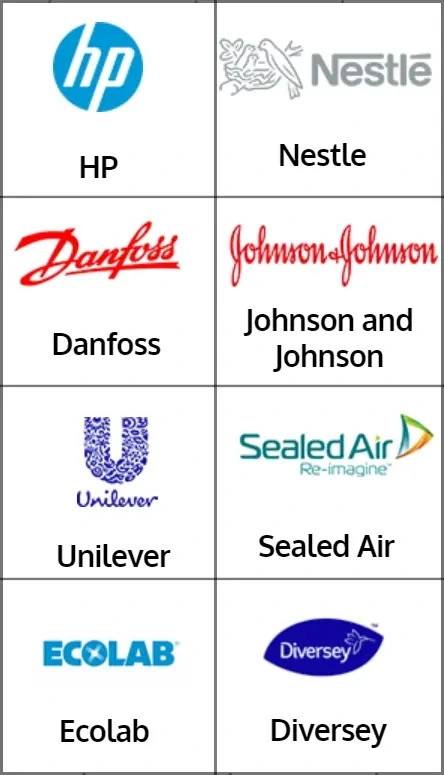
Get in Touch With Us
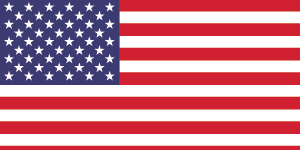
UNITED STATES
Phone:+1 307 363 1045
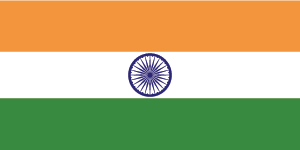
INDIA
Phone: +91 8850629517
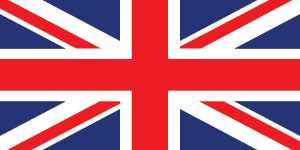
UNITED KINGDOM
Phone: +44 7537 171117
Email: sales@procurementresource.com


